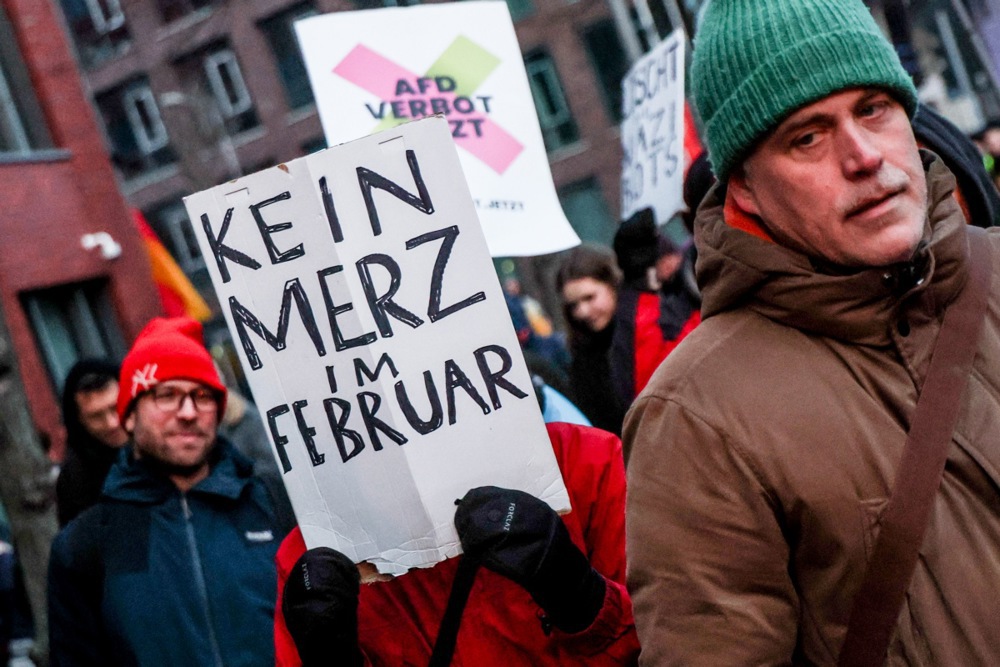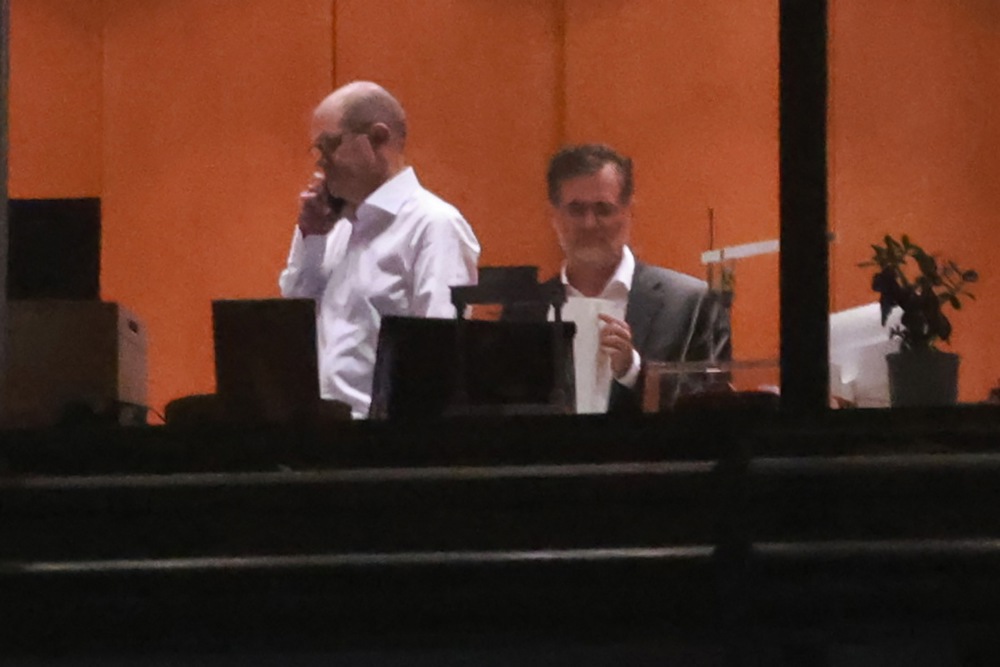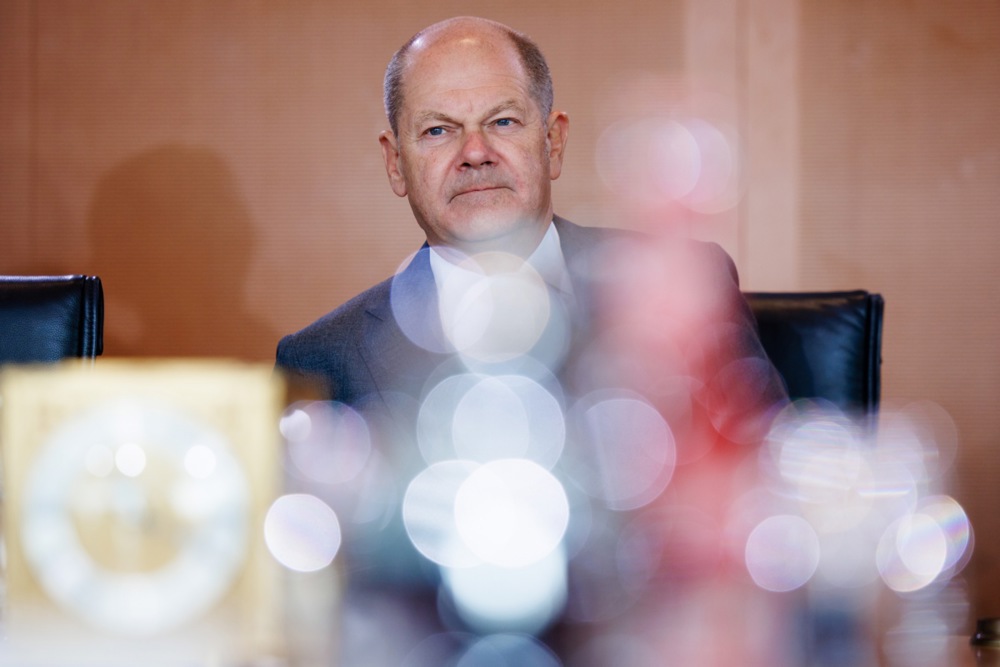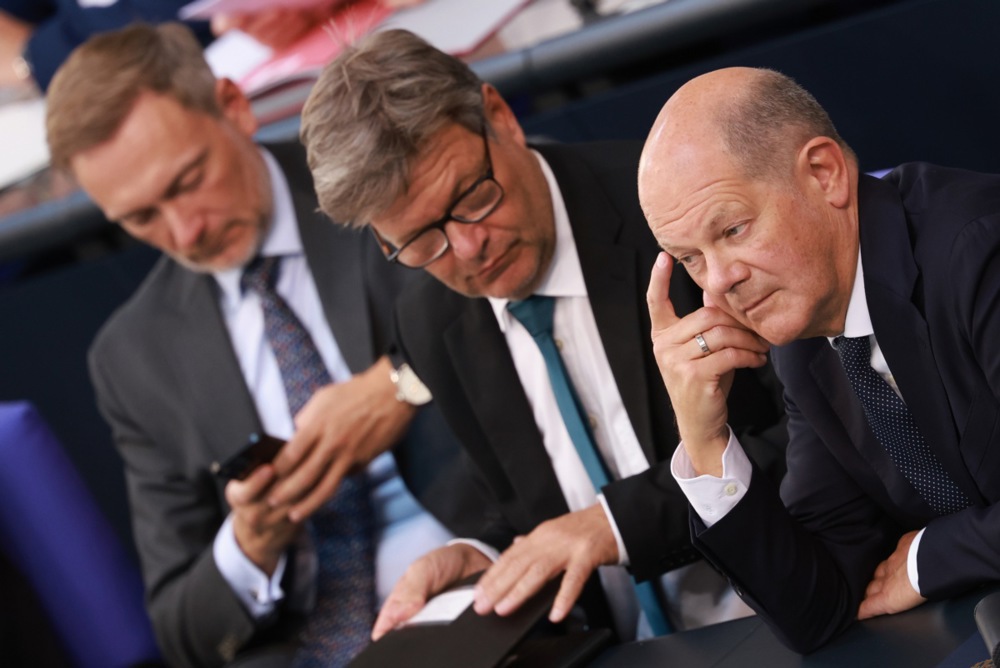Robert Habeck, Vice Chancellor of the outgoing German government and leader of the Greens party, has announced his resignation from all party positions.
“I will not pursue a leading role in the personnel roster anymore,” the 55-year-old told the press on February 24.
Habeck’s resignation meant the leaders of all three government coalition parties have resigned after the general election on February 23. Chancellor Olaf Scholz of the Social Democratic Party (SPD) and Christian Lindner of the Free Democratic Party (FDP) had already announced they were stepping down.
All three parties did badly in the election due to general public discontent with their policies since the “traffic light” coalition between Social Democrats, Liberals, and Greens was first formed in late 2021.
Germany has found itself in a deep economics crisis. The country has also been suffering from the negative effects mass migration with a series of high-profile alleged Islamist terrorist attacks by asylum seekers in recent weeks.
The Greens lost 3 percentage points to slightly under 12 per cent. The SDP lost 9 per cent and recored its worst result since the 1887 Reichstag election under then German emperor William I.
The Liberal FDP – whose voters were apparently shocked by the party’s willingness to support left-wing extremist policies in the last years – collapsed from 11 per cent to 4 per cent and has had to leave parliament.
The Greens evidently had higher expectations. The party officially presented Habeck as its contender for Chancellor – a bold move for a party barely in double digits.
German newspaper Bild reported on February 24 that within the party the electoral result was seen as a “total slap in the face” from voters. Habeck was, therefore, reportedly forced to vacate his post.
His resignation may, though, hurt the Greens in the longer term.
Habeck, a philosopher and free-lance author from Northern Germany, gave the party a friendly face and made it appear eligible to centrist voters. Even political opponents said he seemed to be “a likeable guy” – but also inept as economics minister and unable to comprehend basic economic relationships.
In a January survey, he emerged as the most popular candidate of all parties participating in the election, with 28 per cent of respondents saying they were happy or very happy with him – much more than eventually voted for the Greens.
Some commentators said they expected that, without Habeck, the Greens would radicalise even more towards left-wing extremism and lose middle-class voters.
The other two traffic light coalition parties have been undergoing changes of their own.
Scholz announced on election night that he would not take part in potential negotiations between his SPD and the CDU – which won the election with partners the Bavarian-only Christian Social Union (CSU) garnering 29 per cent of the vote.
Instead, it was announced that Lars Klingbeil, the 47-year-old chairman of the SPD, would lead the negotiations.
Klingbeil announced a “generational change” of the party, although that would not manifestly affect defence minister Boris Pistorius, whom many see as the future leader of the SPD.
Klingbeil and Pistorius announced following they vote they would be closely co-operating.
The FDP has to leave parliament after its dismal showing in the election. Some said they expected that to mark the end of the party.
Despite that, on February 24 Wolfgang Kubicki, a popular liberal MP, announced he might run for the party leadership – leading some commentators to revoke their terminal diagnosis for the FDP, seeing a chance it might return to the Bundestag in the next elections.





